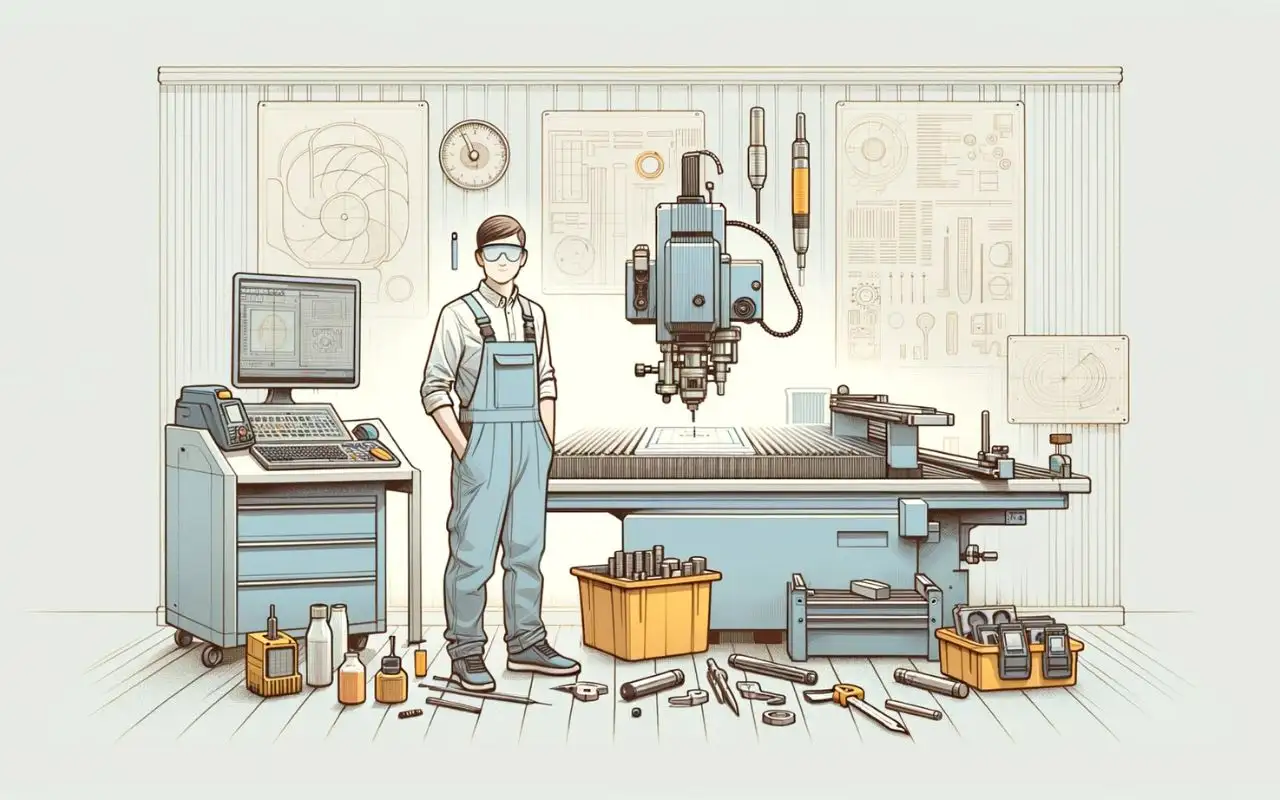A CNC technician operates computer numerical control (CNC) machines to fabricate precision parts and components.
Proficient in interpreting blueprints, they set up and calibrate machines, ensuring accuracy in the manufacturing process.
Their responsibilities also include troubleshooting and maintaining CNC equipment to guarantee optimal functionality.
Adhering to safety protocols and quality standards, CNC technicians play a vital role in the efficient production of customized and high-precision components essential for modern manufacturing processes.
How Much Does A CNC Technician Earn in South Africa
The average monthly salary for a CNC Technician in South Africa is R13,000. Salaries can vary significantly depending on the location within the country.
For instance, Pretoria, Gauteng, offers the highest average salary for CNC operators at R23,800 per month, followed by Johannesburg, Gauteng, with R 18,200 per month, and Durban, KwaZulu-Natal, at R17,000 per month.
Other cities such as Centurion and Germiston in Gauteng also offer competitive salaries, with averages of R 14,800 and R 14,600 per month respectively.
Epping in the Western Cape has the lowest reported average salary for CNC operators at R 10,300 per month.
Factors Affecting CNC Technician Salary in South Africa
Experience
This is the single biggest factor influencing salary. Technicians with more years of experience, especially in complex operations, command higher pay. Aim for specialization and continuous learning to boost your earning potential.
Education & Certifications
Higher education qualifications and industry certifications add value to your profile. Consider diplomas, degrees, and specialized CNC machining certifications relevant to your desired sector.
Location
Salaries vary based on geographic location. Major industrial hubs with high demand for skilled technicians typically offer better pay than smaller towns. Research salary trends in your target area.
Industry
Different industries pay varying salaries for CNC technicians. Some, like aerospace or oil & gas, offer higher wages due to their specialized nature and demands. Explore industries aligning with your interests and earning expectations.
Company Size & Reputation
Larger companies and multinational corporations generally offer higher salaries and benefits compared to smaller firms. Research individual company salary policies and employee reviews.
Specific CNC Skills & Expertise
Operating complex machinery like multi-axis CNC mills or advanced programming skills are valued more highly and translate to higher salaries. Invest in upskilling for specialized operations.
Shift Work & Overtime
Working night shifts, weekends, or overtime often comes with premium pay in some industries. Assess your willingness for such schedules and their impact on your salary.
Negotiation & Benefits
Don’t hesitate to negotiate your salary based on your qualifications and market value. Consider the total compensation package, including benefits like health insurance and paid leave.
Union Membership
Being part of a trade union can provide salary negotiation support, access to training, and better working conditions. Explore the benefits of union membership in your area.
Economic Conditions
Overall economic health can impact job availability and salaries. Stay informed about industry trends and keep your skills updated to adapt to economic fluctuations.
Education and Qualifications of A CNC Technician in South Africa
National Certificate: Engineering Studies (NC-ES)
This Level 4 qualification provides a foundation in engineering principles, workshop practices, and basic CNC operation. It’s often a starting point for apprenticeships or further studies.
National Certificate: Mechanical/Mechatronics (NC-V)
Level 5 qualifications like NC-V in Mechanical or Mechatronics offer in-depth knowledge of mechanical principles, machining processes, and CNC programming. These prepare you for technician roles or further specialization.
Diploma in CNC Machining
Diplomas from technical colleges or universities delve deeper into CNC programming, CAM software, advanced machining techniques, and quality control. Some offer industry-specific specializations, boosting employability.
B-Tech Degree in Mechanical/Mechatronics Engineering
This degree-level qualification equips you with advanced technical knowledge, design skills, and problem-solving abilities. It opens doors to supervisory roles, engineering positions, or further post-graduate studies.
Apprenticeship
Combining on-the-job training with theoretical learning, apprenticeships offer valuable practical experience and a pathway to formal qualifications. Look for programs accredited by the South African Qualifications Authority (SAQA).
Trade Tests
Passing trade tests from the South African National Accreditation System (SANAS) validates your skills and knowledge against industry standards. They can enhance your resume and career prospects.
Industry-Specific Certifications
Specialized certifications for specific CNC machines, programming software, or manufacturing processes demonstrate your expertise in certain areas and attract relevant employers.
Computer-Aided Design (CAD) and Computer-Aided Manufacturing (CAM) Skills
Proficiency in CAD/CAM software is increasingly desirable for CNC technicians. Consider courses or certifications in relevant software like SolidWorks or Mastercam.
Quality Control & Metrology
Understanding quality control procedures and measurement techniques is crucial for ensuring product accuracy. Certifications in relevant standards like ISO 9001 can be beneficial.
Communication & Teamwork
Strong communication and teamwork skills are essential for collaboration with colleagues and clients. Develop these through workshops, projects, or leadership positions.

